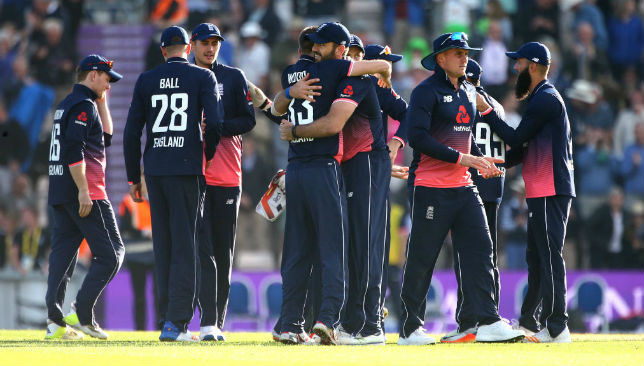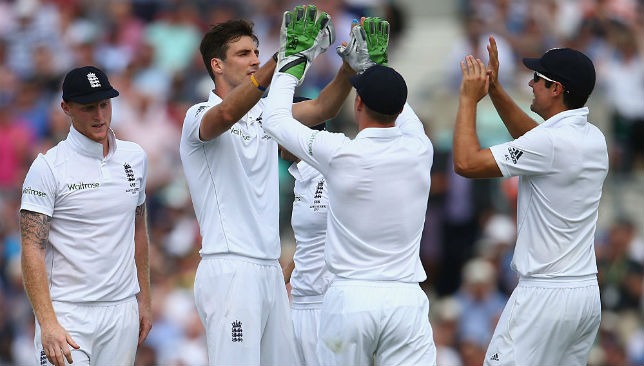
English cricket’s finances received a major boost on Friday with a new TV contract netting the governing body the England and Wales Cricket Board (ECB) over a billion pounds.
Sky Sports saw off strong competition from BT Sports for the most expensive part of the contract retaining its position as the main rights holder for the 2020-2024 period.
However, there was some comfort for those who have gone years without watching live cricket on free to air television – the 2005 Ashes was the last domestic cricket to be aired free on Channel Four.
This is great news. If we want @englandcricket to thrive, young kids need to see how riveting this game is. https://t.co/MeD46YdLpe
— Dr Riyaz Shah (@DrRiyazShah) June 30, 2017
The BBC – who last showed live cricket in 1999 but recently showed highlights of the Champions Trophy tournament – won live broadcast rights from 2020 for 21 matches, including men’s and women’s internationals and the England and Wales Cricket Board’s new Twenty20 competition.
The decision on who won the rights was taken by a five man panel including ECB chief executive Tom Harrison and chairman Colin Graves.
Harrison was keen to stress the breadth of coverage the deal will bring could provoke extra interest in the sport.
Today we announce partnerships with @SkySports and @BBC https://t.co/FgGDaVAUsy pic.twitter.com/x10E22yCV5
— ECB🏏 (@ECB_cricket) June 30, 2017
There has been a fall in participation in recent years despite huge financial investment at all levels.
“This is a great result for cricket. ECB has secured the reach, revenue and relevance the game deserves, to help it to grow,” said Harrison.
“Together, these new deals will deliver the partnership, distribution and investment that will fuel the future of our game, driving recreational, professional and international cricket for years to come.
“Sky Sports have offered a true partnership – more than a broadcast deal — with their shared vision for cricket.
“Here, they further increase their live commitment and have added bold ideas to drive engagement and to help to get a bat and ball in more hands.
“BBC are valuable long-term partners, bringing cricket to listeners, viewers and a new digital audience. “We are delighted they will go to another level with live coverage of international and domestic T20 – men’s and women’s – alongside prime-time highlights shows and a commitment to taking the game to even wider audiences.”
We analyse the key questions after the England and Wales Cricket Board revealed details of its broadcast rights deal for the five-year period between 2020-2024, with Sky Sports and the BBC the successful bidders.
Sky will retain its status as the main home for live English cricket, hosting all home Tests, ODIs and T20Is, women’s matches and county cricket, including the entirety of the new eight-team T20 competition. BBC has won a 21-match bundle of free-to-air games, all of which are Twenty20 matches and which will also be shown on Sky.
That breaks down as two men’s internationals and one women’s international, 10 matches from the new T20 competition and eight from the women’s equivalent. In addition the national broadcaster will show primetime highlights of all men’s internationals, while both organisations have access to digital clips.

Sky will be telecasting The Ashes as it retained that status according to the deal.
Cricket last appeared on free-to-air in 2005, when Channel 4 signed off following the unforgettable 2005 Ashes. Since then while players’ pay packets have increased there have been concerns over the wider visibility of the sport and a decline in participation.
The hope now is the regular appearance of the nation’s top male and female players on the BBC – who last hosted live English cricket in 1999 – will help bring cricket back into the national conversation. Sky has also committed to driving engagement initiatives, informed by its Sky Ride cycling programme.
The ECB will bring £1.1billion from the new arrangements, a huge increase on the previous deal which saw Sky pay £75million a year. The governing body had not set any official targets but the final figure is thought to marginally outstrip even the upper estimates.
BT Sport’s entry into the market was a big factor in pushing Sky to raise their offer, with a genuine tug-of-war between the broadcasters strengthening the ECB hand considerably.
Well done @SkySports and @BBCSport for committing to grow the game at all levels 🙌 The future is bright 🏏
— Eoin Morgan (@Eoin16) June 30, 2017
With three years to wait before the changes come in, no firm decisions have taken place as to how the windfall will be spent. There will be no shortage of takers, with elite players, the county system and grassroots development all having persuasive cases to make for an increased slice of the pie.
Plenty of discussions will take place in the coming months, and years, with a variety of stakeholders but the ECB has considerable leeway to invest at all levels.
Having celebrated its 60th anniversary this summer, TMS can look forward to at least another seven years on the airwaves. TalkSPORT were rumoured to be interested in a deal but BBC Radio won live coverage of all domestic and international competitions.
New Sky Sports-ECB deal includes every match from new T20 competition & commitment to drive participation in game: https://t.co/f7Oeyh1Zyu pic.twitter.com/7YsmJjb3KV
— Sky Sports Cricket🏏 (@SkyCricket) June 30, 2017
Provided by Press Association Sport